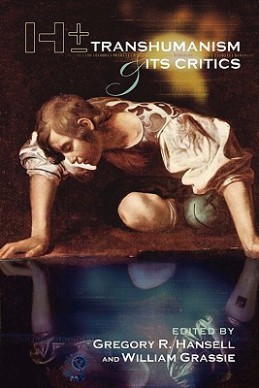H+/-: Transhumanism and Its Critics
May 5, 2011
- author |
- Gregory R. Hansell, William Grassie
- year published |
- 2011
William Grassie | Can human nature be improved upon with the application on new sciences and technologies? Can we increase human life span, perhaps even curing death? Can we recreate ourselves and our children to be super healthy, super attractive, super athletic, super happy, and super smart? Who gets to decide these questions and how? Would these super humans still be humans or should we better call them posthumans or transhumans? Is this new vision something we should pursue or would the very pursuit of this vision actually destroy our humanity in both the biological and moral senses? Is transhumanism humanity plus or minus?
Transhumanism and Its Critics brings together sixteen of the world’s foremost thinkers on these issues. The often heated debate about transhumanism is an extremely fruitful field for philosophical and theological inquiry. The last hundred years of human evolution have seen remarkable scientific and technological transformations. If the pace of change continues and indeed accelerates in the twenty-first century, then in short order we will be a much-transformed species on a much-transformed planet. The idea of some fixed human nature, a human essence from which we derive notions of humane dignities and essential human rights, no longer applies in this brave new world of free market evolution. On what basis then do we make moral judgments and pursue pragmatic ends? Should we try to limit the development of certain sciences and technologies? How would we do so? Is it even possible? Are either traditional religious or Enlightenment values adequate at a speciation horizon between humans and posthumans? Is the ideology of transhumanism dangerous independent of the technology? Is the ideology of the bioconservatives, those who oppose transhumanism, also dangerous and how? Are the new sciences and technologies celebrated by transhumanists realistic or just another form of wishful thinking? And which utopic and dystopic visions have the power to illuminate and motivate the future?
The collection of essays in this book present an invaluable introduction to these issues and more, but offer no final resolution. You will discover much worthy of debate that will transform how you think about the world, yourself, and our uncommon future.
